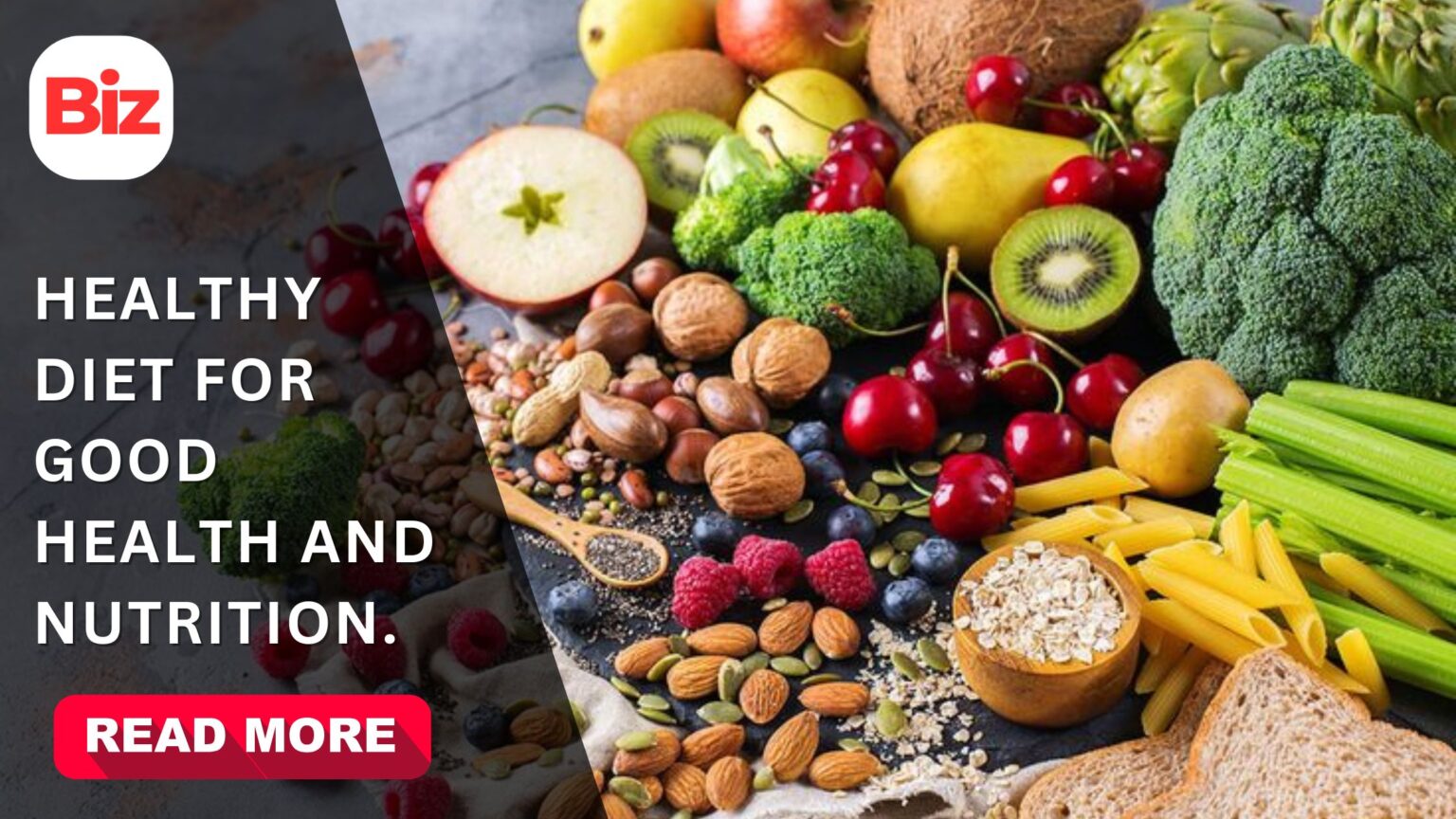- Why a Healthy Diet Matters
- The Essentials of Good Healthy Nutrition.
- Food and grocery products.
- The Fruits and Vegetables Power.
- Incorporating Legumes as a source of Energy and Health.
- Animal-Based Foods: Find Your Middle Ground.
- Fats: Healthy vs. Unhealthy.
- How Much Sugar is Too Much?
- Salt and Sodium: Little but powerful Effect.
- The Breastfeeding: The First Healthy Choice of Children.
- How to design a Simple Healthy Meal Plan?
- Dining Ideas and Healthy Dining
- Lifestyle Nutrition: Everyday Healthy Living.
- Advantages of Adhering to a Diet Meal plan.
- Be Healthy, Stay Strong
We’ve all heard the saying, “You are what you eat.” And, sincerely speaking, it could not be otherwise. A well-balanced meal is the key to a healthy body, a clear mind, and a healthy life. Keeping you healthier, preventing chronic diseases such as diabetes and heart disease, and increasing your daily energy, healthy food choices can change your life.
But what is a good healthy nutrition plan? Is it not about not eating all of your favorite dishes, is it more about balance? We are going to simplify it in a practical manner that will allow you to design a healthy meal plan that can not only feed you but also fit into your lifestyle.
Why a Healthy Diet Matters
It is not merely the diet of being fit but it is the feeling good both inside and outside. It helps guard against chronic diseases such as heart disease, cancer and diabetes besides providing you with more energy to carry out your day-to-day activities.
Imagine your body is a car: it will not be able to run without the appropriate fuel.
The Essentials of Good Healthy Nutrition.
Balance is the basis of a healthy meal plan. A good diet includes:
- Staples: cereals, rice, or starchy roots.
- Vegetables and fruits: they are rich in vitamins and minerals.
- Legumes: beans, lentils, and peas.
- Animal products: low-fat meat, eggs, and dairy.
This combination makes your diet meal plan satisfactory in all nutritional requirements.
Food and grocery products.
Meals in every part of the world are based on staples such as wheat, maize, rice, and potatoes. They serve as energy and when they are combined with vegetables and proteins they become the healthy choice and not only a filling food.
The Fruits and Vegetables Power.
A food rainbow of berries and leafy greens, as well as juicy ones, will supply you with antioxidants, fiber, and vitamins.
The nutrients are effective in minimizing the chances of obesity, stroke, and cancers. Think of the fruits and vegetables as your own medicine cabinet.
Incorporating Legumes as a source of Energy and Health.
The low-cost beans, lentils, and chickpeas are health and protein-rich and can fit in any diet meal plan. They increase energy, make you stay fuller and aid in proper digestion.
Animal-Based Foods: Find Your Middle Ground.
Protein and vital minerals such as iron and calcium can be found in meat, eggs and milk. But moderation is crucial.
Eat lean meats and low fat dairy as a healthy solution to your body.
Fats: Healthy vs. Unhealthy.
Not all fats are bad. Your body can, in fact, use healthy fats to work.
- Good fats: fish oils, olive oil, and sunflower oil.
- Bad fats: butter, Lard, coconut oil, and industrial trans-fats.
Replacing bad oils with the good ones is as good as replacing low-quality fuel with high-quality fuel- it will result in better performance over time.
How Much Sugar is Too Much?
Sugar is sneaky. It is concealed in snacks, soft drinks and even sauces. WHO suggests a daily calorie percentage of sugar intake of less than 10 percent. Want a tip? Eat cookies instead of fresh fruits and drink sodas instead of water it is a healthy choice and helps in good healthy eating.
Salt and Sodium: Little but powerful Effect.
Have you heard that salt is elevated in blood pressure? With less than 5g a day of intake, you can keep out of heart disease and stroke. Attempt to flavor food using herbs and spices rather than salt.
The Breastfeeding: The First Healthy Choice of Children.
A healthy diet starts early. Breastfeeding the child in the initial six months of life makes the babies strong and also lessens their chances of becoming obese and having chronic diseases in future.
How to design a Simple Healthy Meal Plan?
A diet meal plan does not have to be a complex task. Here’s a sample idea:
- Breakfast: Fruit oatmeal.
- Lunch: Baked chicken and vegetables with rice.
- Snack: Nuts and fresh fruit.
- Healthy Dinner: Lentil soup and whole-grain bread.
This diversity guarantees balanced nutrition in the lifestyle.
Dining Ideas and Healthy Dining
It is at dinner that we tend to indulge in bad habits. In place of heavy-fried foods, substitute with:
- Fish, grilled and served with steaming vegetables.
- Stir-fry of vegetables with brown rice.
- Chicken, bean and green soup.
- These are wholesome, delicious, and healthy meals.
Lifestyle Nutrition: Everyday Healthy Living.
What you eat is the foundation in your health in the long run. Simple substitutes such as water over soda, fruit over cake, or olive oil over butter will make a good, healthy lifestyle nutrition pattern.
Advantages of Adhering to a Diet Meal plan.
Consistency pays off. With a diet meal plan, you will be able to:
- Improve energy levels.
- Boost your immune system.
- Minimize the dangers of chronic disease.
- Enhance a better, increased life.
Be Healthy, Stay Strong
Well, eating is a way of life and not a one-time solution at the end of the day. Select healthy meals, eat wisely, and experience a balance of good, healthy food products. Living a healthy life today and tomorrow is based on a healthy meal plan.
FAQs
1. How can one begin to eat healthy?
Begin with simple changes, such as including more fruits and vegetables in your diet, drinking less sugar, and eating healthier oils.
2. What should I do to prepare healthy dinners in a hurry?
Store items such as whole grains, beans and frozen vegetables in the house. Fast and healthy soups and quick stir-fries.
3. Would I be able to consume my favorite foods in a weight loss diet?
Yes, moderation is key. Eat what you like now and again but pay attention to moderation and amount.
4. What is the recommended amount of water to take in a day to keep healthy?
The average adult should take 8-10 glasses of water a day, which may change according to the activity and weather.
5. What is the significance of lifestyle nutrition?
Since food is what you eat every day, it determines how healthy, energetic and how long you can live. It is not short-term decisions but long-term ones.
YOU MAY ALSO READ: Morning Routine for Success: Healthy Morning Habits of Successful People








